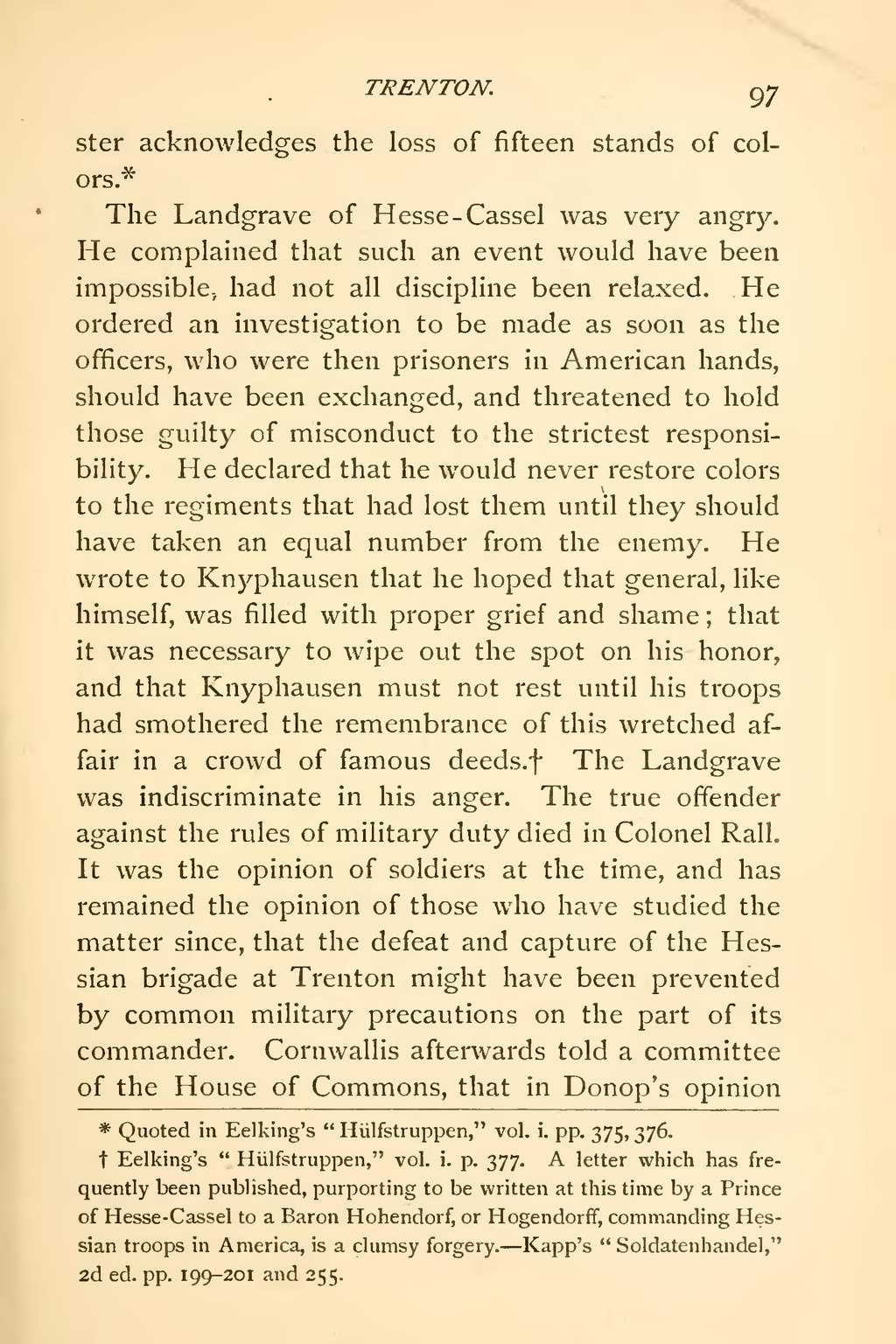ster acknowledges the loss of fifteen stands of
colors.[1]
The Landgrave of Hesse-Cassel was very angry. He complained that such an event would have been impossible, had not all discipline been relaxed. He ordered an investigation to be made as soon as the officers, who were then prisoners in American hands, should have been exchanged, and threatened to hold those guilty of misconduct to the strictest responsibility. He declared that he would never restore colors to the regiments that had lost them until they should have taken an equal number from the enemy. He wrote to Knyphausen that he hoped that general, like himself, was filled with proper grief and shame; that it was necessary to wipe out the spot on his honor, and that Knyphausen must not rest until his troops had smothered the remembrance of this wretched affair in a crowd of famous deeds.[2] The Landgrave was indiscriminate in his anger. The true offender against the rules of military duty died in Colonel Rall. It was the opinion of soldiers at the time, and has remained the opinion of those who have studied the matter since, that the defeat and capture of the Hessian brigade at Trenton might have been prevented by common military precautions on the part of its commander. Cornwallis afterwards told a committee of the House of Commons, that in Donop's opinion
- ↑ Quoted in Eelking's “Hülfstruppen,” vol. i. pp. 375, 376.
- ↑ Eelking's “Hülfstruppen,” vol. i. p. 377. A letter which has frequently been published, purporting to be written at this time by a Prince of Hesse-Cassel to a Baron Hohendorf, or Hogendorff, commanding Hessian troops in America, is a clumsy forgery.—Kapp's “Soldatenhandel,” 2d ed. pp. 199-201 and 255.
